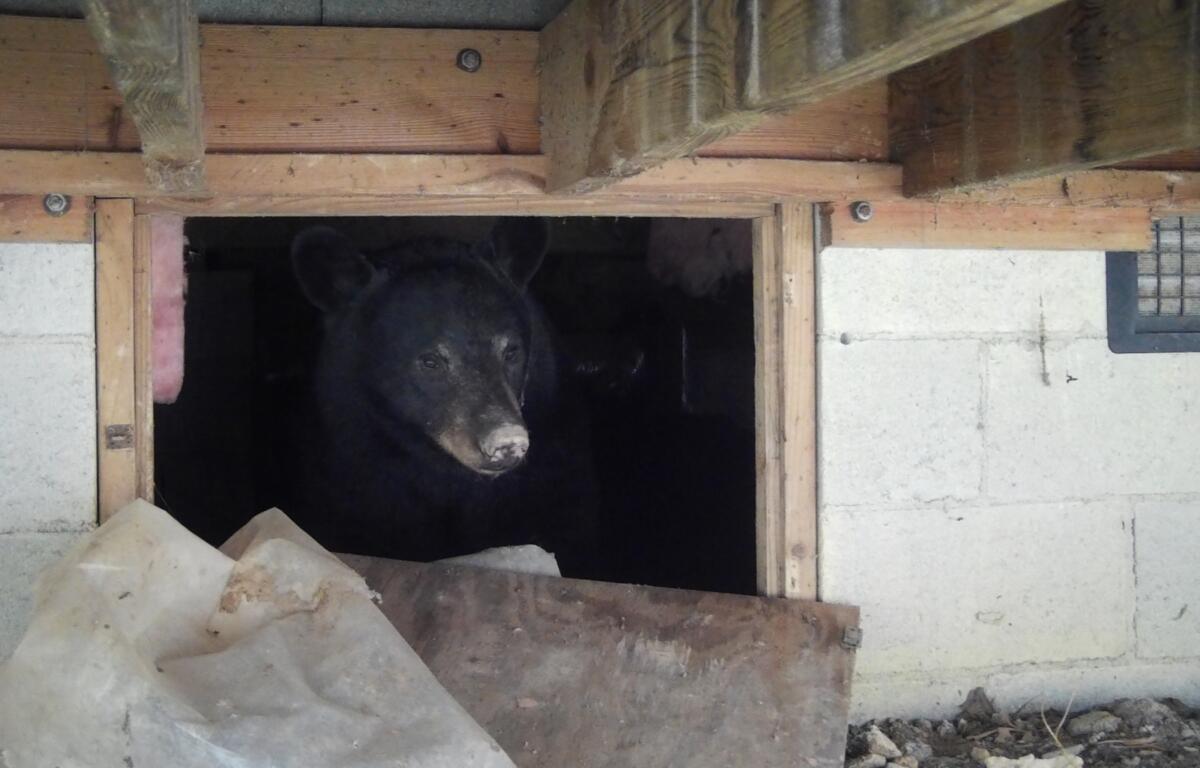ASHEVILLE, N.C. (828newsNOW) — With denning season underway for North Carolina’s black bears, state wildlife officials are urging homeowners and businesses to take steps now to prevent bears from settling in under buildings and other structures for the winter.
The North Carolina Wildlife Resources Commission says bears often seek shelter in areas that offer cover and warmth, including crawl spaces, under decks, vacant homes, storage sheds and even brush piles. To reduce the likelihood of bears denning on private property, officials recommend following BearWise practices, such as securing buildings, removing food sources and blocking access to potential den sites.
Residents are encouraged to close and lock pet doors and outbuildings, check beneath decks and porches for openings and seal potential entry points with fencing or plywood. Garbage, bird feeders and any food left outdoors for wildlife should be removed or secured. Those with vacant homes or cabins should lock all ground-level windows and doors and clear out items that may attract bears.
“Any building or structure, occupied or not, can be a source of shelter for bears,” Ashley Hobbs, the state’s BearWise coordinator, said in a news release. “Bears can squeeze into surprisingly small spaces because they don’t have collarbones. We routinely receive reports of large, adult bears accessing crawlspaces through standard 8-by-16-inch foundation vents.”
LEARN MORE ABOUT BLACK BEARS HERE
Denning season in North Carolina can begin as early as October and last into February, though some bears may not den at all. Food availability, including human-provided food like bird seed, largely determines whether and when bears choose to den.
“Female black bears having cubs will always den,” Jenna Malzahn, a state black bear biologist, said in the news release. “We are seeing other bears den later in the winter or not at all due to the year-round availability of human-provided foods.”
Wildlife officials say denning under homes has become more common as human development and bear populations increase. If a den is discovered, residents may be able to safely coexist with the bear until it leaves in spring, typically between October and April.
“Bears are only interested in getting their winter rest or caring for cubs,” Malzahn said. “Disturbances by people or pets may cause a female to abandon her cubs, so that needs to be considered before making the decision to address a denning bear.”
CLICK HERE IF YOU HAVE A BEAR PROBLEM
Anyone who finds a den on their property should contact the N.C. Wildlife Helpline at 866-318-2401 or reach out to a district wildlife biologist for guidance.
Officials also recommend inspecting properties in spring after bears become active again, as they search for future den sites throughout the year. More information on securing potential den locations is available at BearWise.org.


